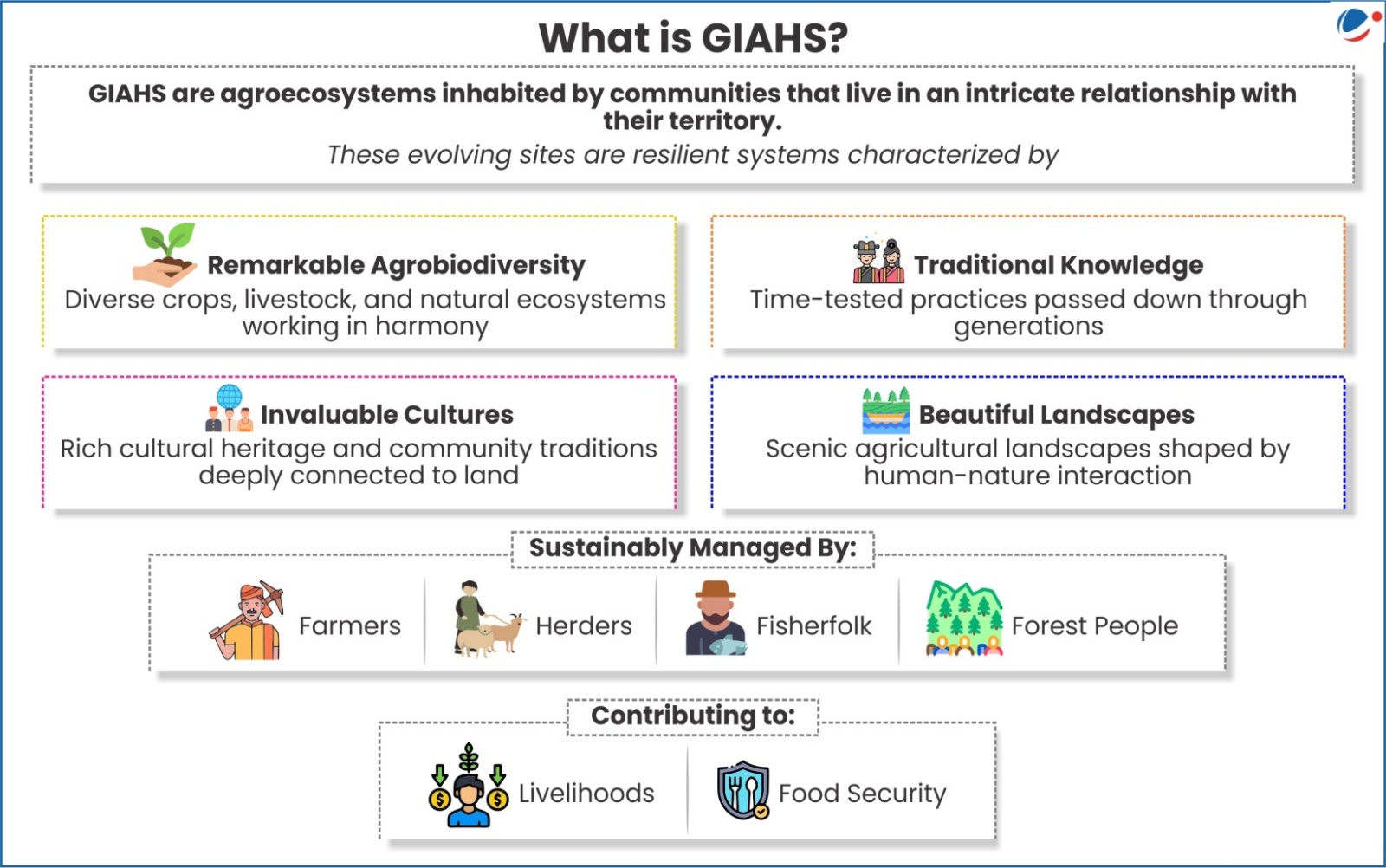Why in the News?
Six news sites have been added to FAO's Globally Important Agricultural Heritage Systems (GIAHS) Programme.
More on the News
The recent additions include:
- A traditional agroforestry system for erva-mate plant in Brazil.
- Specialised farming systems in China for pearl mussels (a mollusc), white tea, and pears
- Ancestral system preserving vital food crops and biodiversity in Mexico
- A distinctive farming system in the volcanic landscape of Lanzarote island, Spain
About Globally Important Agricultural Heritage Systems (GIAHS) Programme
- Genesis: Launched at the World Summit for Sustainable Development in 2002 as a response to the alarming global trends undermining family farmers and traditional agricultural systems.
- Purpose: To protect family farming and traditional agricultural systems from threats such as
- climate change,
- community displacements, and
- biodiversity loss.
- Approach: Using a multistakeholder approach, GIAHS provides
- technical assistance to farming communities
- promotes the value of traditional agricultural knowledge
- stimulates markets for farm products, agrotourism and other market opportunities.
- Current Status: There are 95 GIAHS sites in 28 countries, including:
- Saffron Heritage of Kashmir
- Koraput Traditional Agriculture (in Odisha)
- Kuttanad Below Sea Level Farming System (in Kerala)

Why Protect Family Farming and Traditional Agriculture?
- Food Security: Provide diverse, nutritious food while preserving crop varieties and using resources sustainably.
- Income security: Increase the resilience of the 2.5 billion people whose livelihoods depend on agriculture, including Indigenous Peoples..
- Cultural Heritage: Conserve the enormous diversity in global communities, cultures, histories, and traditions, while offering alternatives to modern agriculture.
- Innovation Foundation: Provide the foundation for contemporary and future agricultural innovations and technologies.
Conclusion
Today, preserving family and traditional farming systems is more challenging than ever, with younger generations increasingly moving to cities. Recognising their critical role, the UN has also declared 2019–2028 as the UN Decade of Family Farming.







